Living without a vestibular nerve can be a challenging and unique experience. The vestibular nerve plays a crucial role in maintaining balance and spatial orientation. Without this nerve, individuals may face a multitude of physical, emotional, and social challenges. In this article, we will delve into the intricacies of what it is like to live without a vestibular nerve, exploring the scientific understanding, medical perspectives, psychological impact, and future developments in this field.
Understanding the Vestibular Nerve
The vestibular nerve, also known as the eighth cranial nerve or the acoustic-vestibular nerve, is responsible for transmitting sensory information from the inner ear to the brain. It plays a pivotal role in our sense of balance, coordination, and spatial awareness. The nerve carries signals about head movement, orientation, and fluid changes in the inner ear to the brain, allowing us to maintain our equilibrium and adjust our body position accordingly.
The Role of the Vestibular Nerve in Balance
Balance is a highly complex process that involves a combination of sensory information from the eyes, inner ear, and proprioceptors in the muscles and joints. The vestibular nerve provides vital input to this process by detecting angular and linear acceleration, which helps maintain stability during various activities such as walking, running, or even sitting upright.
When we walk, for example, the vestibular nerve sends signals to the brain about the movement of our head and body. These signals are then integrated with visual information from our eyes and proprioceptive information from our muscles and joints. This integration allows the brain to make real-time adjustments to our posture and muscle activity, ensuring that we stay upright and balanced.
Similarly, during activities that involve rapid changes in direction or speed, such as playing sports or riding a roller coaster, the vestibular nerve plays a crucial role in helping us maintain our balance. It quickly detects changes in head position and movement, allowing the brain to make the necessary adjustments to keep us stable and prevent falls or accidents.
The Vestibular Nerve and Sensory Information
In addition to contributing to balance, the vestibular nerve also plays a crucial role in processing a range of sensory information. This includes information related to head position, gravitational forces, and changes in velocity. Without the vestibular nerve, the brain may have difficulty comprehending these sensory inputs, leading to a distorted perception of the environment.
For example, imagine standing on the edge of a cliff and looking down. The vestibular nerve sends signals to the brain about the position of your head and the force of gravity acting on your body. This information helps you maintain a sense of balance and prevents you from feeling disoriented or dizzy. Without the vestibular nerve, your brain would struggle to interpret these signals, potentially leading to a feeling of instability and a heightened sense of fear or unease.
The vestibular nerve also plays a crucial role in our ability to detect and respond to changes in velocity. When we are in a moving vehicle, such as a car or a train, the vestibular nerve sends signals to the brain about the acceleration and deceleration of our body. This information allows us to adjust our posture and muscle activity accordingly, ensuring that we remain stable and comfortable during the journey.
In conclusion, the vestibular nerve is an essential component of our sensory system, contributing to our sense of balance, coordination, and spatial awareness. It enables us to navigate the world with ease, making rapid adjustments to our body position and movement. Without the vestibular nerve, our perception of the environment would be distorted, and our ability to maintain stability and respond to changes in velocity would be compromised.
Life Without a Vestibular Nerve
Living without a vestibular nerve can significantly impact an individual’s everyday life. From dealing with symptoms and challenges to finding coping mechanisms and adaptations, the absence of this nerve poses unique obstacles to those affected.
Symptoms and Challenges
People without a vestibular nerve often experience a range of symptoms that can affect their quality of life. These symptoms may include dizziness, vertigo, unsteadiness, difficulty with balance, and a heightened sensitivity to motion sickness. These challenges can make even simple tasks, such as walking or standing, incredibly difficult and may significantly impact an individual’s independence and mobility.
Living with dizziness can be disorienting and frustrating. It can make it hard to focus on tasks and can lead to feelings of anxiety and fear. The constant feeling of being off-balance can also affect one’s confidence and self-esteem. Simple activities like going for a walk or getting out of bed can become daunting tasks, requiring careful planning and support.
Vertigo, a spinning sensation, can be particularly debilitating. It can strike suddenly and without warning, making it difficult to engage in daily activities. The fear of experiencing vertigo episodes can lead to social isolation and a reluctance to participate in activities that were once enjoyed.
Individuals without a vestibular nerve may also struggle with unsteadiness and difficulty with balance. This can make navigating uneven surfaces or crowded spaces challenging and increase the risk of falls. The constant need to be cautious and vigilant can be mentally and physically exhausting.
In addition to physical symptoms, the absence of a vestibular nerve can heighten an individual’s sensitivity to motion sickness. Simple movements, such as riding in a car or using public transportation, can trigger severe nausea and discomfort. This can limit one’s ability to travel and explore new places, impacting their overall quality of life.
Coping Mechanisms and Adaptations
Given the physical limitations imposed by the absence of a vestibular nerve, individuals often develop various coping mechanisms and adaptations to navigate their daily lives more effectively. This may include relying on visual cues for balance, using assistive devices, and practicing specialized exercises aimed at improving their stability and coordination. Consulting with a healthcare professional or a vestibular rehabilitation therapist can be particularly valuable in developing appropriate strategies tailored to an individual’s specific needs.
Visual cues become crucial for individuals without a vestibular nerve. They rely heavily on visual information to maintain their balance and spatial orientation. This may involve focusing on stationary objects or landmarks while walking or using handrails for support when going up or down stairs. By relying on visual cues, individuals can compensate for the lack of vestibular input and navigate their surroundings more effectively.
Assistive devices can also play a significant role in improving mobility and independence. Canes, walkers, and wheelchairs may be used to provide stability and support, especially in situations where balance is compromised. These devices can help individuals regain confidence and maintain their ability to engage in daily activities.
Vestibular rehabilitation therapy is a specialized form of therapy that focuses on improving balance and reducing symptoms associated with vestibular disorders. Through a series of exercises and techniques, individuals can gradually regain their stability and coordination. These exercises may include head movements, eye exercises, and balance training. The guidance and expertise of a vestibular rehabilitation therapist can make a significant difference in an individual’s ability to adapt and cope with the challenges of living without a vestibular nerve.
Living without a vestibular nerve presents unique challenges, but with the right support and strategies, individuals can find ways to navigate their daily lives and maintain their independence. It is important for those affected to seek professional help and connect with support networks to ensure they receive the necessary assistance and resources to thrive.
Medical Perspectives on Vestibular Nerve Absence
From a medical standpoint, diagnosing and treating vestibular nerve absence is a complex process that requires specialized expertise and diagnostic tools.
The vestibular nerve, also known as the eighth cranial nerve or the vestibulocochlear nerve, plays a crucial role in maintaining balance and spatial orientation. When this nerve is absent, individuals may experience a range of symptoms, including dizziness, vertigo, imbalance, and difficulty with coordination.
Diagnosing the absence of a vestibular nerve typically involves a comprehensive evaluation by a medical professional, such as an otolaryngologist or an audiologist. These specialists have the knowledge and expertise to conduct various tests and examinations to assess the presence, functionality, and integrity of the vestibular nerve.
Diagnosis and Detection
Identifying the absence of a vestibular nerve requires a thorough assessment using specialized diagnostic tools. One commonly used test is auditory brainstem response testing, which measures the electrical activity of the auditory nerve and brainstem in response to sound stimuli. This test can help determine if the vestibular nerve is present and functioning properly.
Another diagnostic tool is electronystagmography, a test that measures eye movements to evaluate the function of the vestibular system. By analyzing the eye movements, medical professionals can gather valuable information about the integrity of the vestibular nerve.
In addition to these tests, vestibular-evoked myogenic potentials may also be conducted. This test measures the muscle responses in the neck and eyes to specific sounds or stimuli, providing further insights into the functionality of the vestibular nerve.
These diagnostic tests play a crucial role in confirming the absence of the vestibular nerve and ruling out other potential causes of balance and dizziness symptoms. They help medical professionals develop an accurate diagnosis and create an appropriate treatment plan tailored to the individual’s specific needs.
Treatment Options and Rehabilitation
Once vestibular nerve absence is confirmed, treatment options are primarily focused on managing the symptoms and improving the individual’s overall quality of life. While there is no cure for the absence of the vestibular nerve, various interventions can help individuals cope with the challenges it presents.
Medication may be prescribed to alleviate symptoms such as dizziness and vertigo. These medications can help individuals regain a sense of stability and reduce the impact of their symptoms on daily activities.
Vestibular rehabilitation is another important aspect of treatment. This specialized form of physical therapy aims to enhance compensation and adaptability in individuals with vestibular disorders. Through a series of exercises and maneuvers, vestibular rehabilitation can help individuals improve their balance, reduce dizziness, and regain confidence in their ability to move and navigate their surroundings.
Psychological support is also crucial for individuals with vestibular nerve absence. The condition can have a significant impact on an individual’s emotional well-being, leading to anxiety, depression, and a decreased quality of life. Mental health professionals can provide support and guidance to help individuals cope with the emotional difficulties caused by the condition.
In conclusion, diagnosing and treating vestibular nerve absence requires a multidisciplinary approach involving medical professionals with specialized knowledge and diagnostic tools. While there is no cure for this condition, various treatment options and rehabilitation strategies can help individuals manage their symptoms and improve their overall quality of life.
The Psychological Impact of Living Without a Vestibular Nerve
Living without a vestibular nerve can have profound psychological effects, influencing emotional well-being, mental health, and social interactions.
Imagine waking up one day and finding that your world has been turned upside down. The simple act of maintaining balance, something most of us take for granted, becomes an immense challenge. This is the reality for individuals living without a vestibular nerve, a condition that can have far-reaching consequences on their psychological well-being.
Emotional and Mental Health Considerations
The constant challenges and limitations experienced by individuals without a vestibular nerve can lead to feelings of frustration, anxiety, and depression. The inability to engage in activities that were once enjoyed or the fear of falling and getting injured can take a toll on one’s emotional and mental state. The loss of independence and the need to rely on others for support can also contribute to feelings of helplessness and a diminished sense of self-worth.
However, there are strategies that can help individuals cope with these emotional and mental health considerations. Seeking support from mental health professionals who specialize in vestibular disorders can provide valuable guidance and support. Cognitive-behavioral therapy, for example, can help individuals reframe negative thoughts and develop coping mechanisms to manage anxiety and depression. Engaging in mindfulness practices, such as meditation and deep breathing exercises, can also help individuals cultivate a sense of calm and reduce stress levels.
Furthermore, joining support groups with others facing similar challenges can be incredibly beneficial. These groups provide a safe space for individuals to share their experiences, exchange coping strategies, and find solace in knowing that they are not alone in their journey. Connecting with others who understand the unique struggles of living without a vestibular nerve can foster a sense of belonging and provide a much-needed support network.
Social Implications and Interactions
Living without a vestibular nerve can also impact an individual’s social life and interactions. The need to rely on visual cues and adaptations to maintain balance may make certain social situations, such as crowded environments or fast-paced activities, more challenging. This can lead to feelings of isolation and a reluctance to participate in social events.
It is important for individuals living without a vestibular nerve to communicate their needs to friends, family, and colleagues. By explaining their condition and the challenges they face, they can foster understanding and empathy. Loved ones can provide the necessary support and make accommodations to ensure that social interactions are inclusive and enjoyable for everyone involved.
Additionally, raising awareness about living without a vestibular nerve can help educate the general public and promote a more inclusive society. By shedding light on this often invisible condition, individuals can advocate for better accessibility and understanding in public spaces, making it easier for those without a vestibular nerve to navigate the world around them.
In conclusion, living without a vestibular nerve can have a profound psychological impact. It is crucial for individuals facing this challenge to seek support, both from mental health professionals and from others who understand their unique circumstances. By addressing the emotional and mental health considerations and fostering understanding in social interactions, individuals can navigate their daily lives with resilience and a sense of empowerment.
Future Research and Developments
Advancements in technology and continued research efforts offer hope for individuals without a vestibular nerve, aiming to improve their overall quality of life and potentially provide solutions to overcome the limitations imposed by this condition.
Technological Advancements and Potential Solutions
Emerging technologies, such as cochlear implants and vestibular prostheses, hold promise in compensating for the absence of the vestibular nerve. Cochlear implants, commonly used to restore hearing in individuals with hearing loss, have shown potential in providing some level of balance recovery. Additionally, vestibular prostheses are being developed to stimulate the remaining vestibular structures, aiming to restore balance and improve spatial orientation.
The Importance of Continued Study
Continued research and study into the intricacies of living without a vestibular nerve are essential in further understanding this condition and developing more effective treatment strategies. Conducting clinical trials, investigating regenerative approaches, and exploring novel therapies can offer valuable insights and potentially enhance the lives of individuals affected by the absence of the vestibular nerve.
Conclusion
In conclusion, living without a vestibular nerve poses numerous challenges across physical, emotional, and social aspects of life. Understanding the scientific underpinnings, consulting with medical professionals, managing psychological well-being, and exploring future research and developments are crucial for those affected by this condition. While not having a vestibular nerve presents unique obstacles, with appropriate support and adaptation, individuals can lead fulfilling lives. Remember, if you are facing symptoms or challenges related to the absence of a vestibular nerve, it is imperative to consult with qualified healthcare professionals who can provide personalized guidance and support.




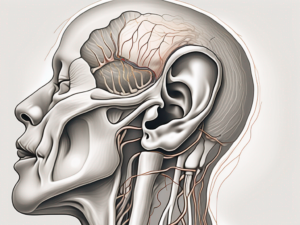
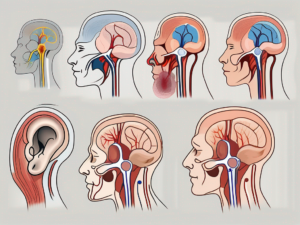
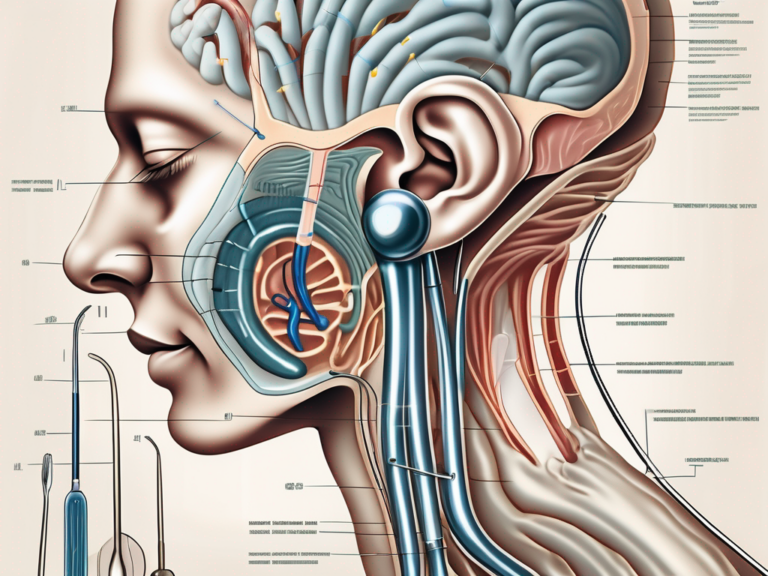
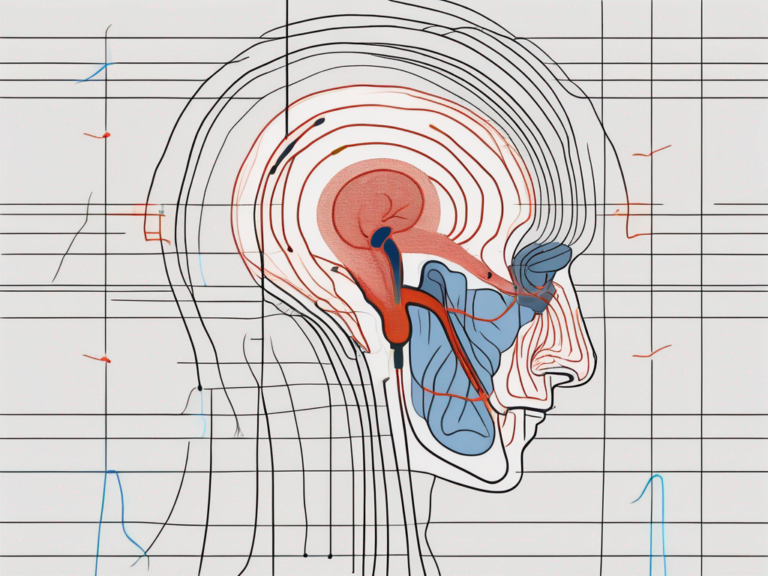
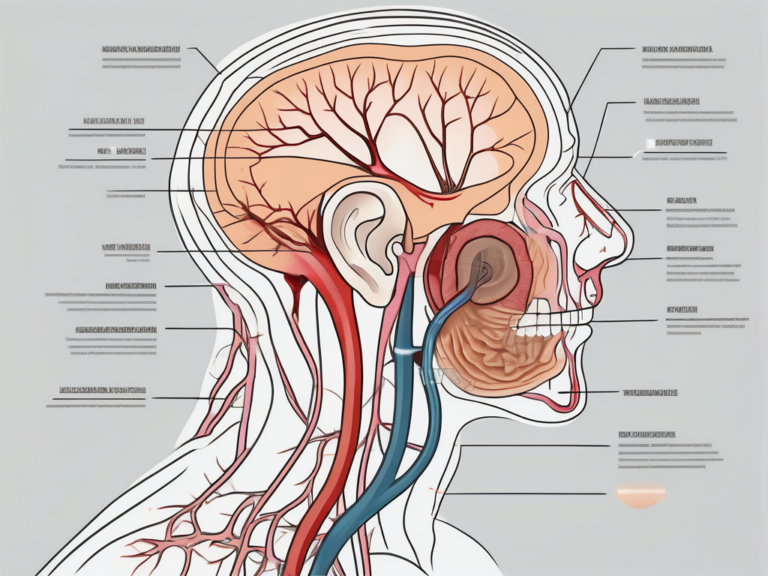
+ There are no comments
Add yours